Working from home – now and in the future
Author: Damir Zejnulahović
The COVID 19 pandemic has changed the daily lives of the majority of the world’s population, in terms of everyday activities and long-term projections, inevitably shaken by recent developments. During these early days of the pandemic it is difficult to foresee exactly what changes will have the most significant impact on people’s lives once the crisis is over. Still, new trends in the way people work, i.e. the way we relate to each other professionally, is just one of many aspects about to undergo dramatic changes. It is for this reason that the workplace, as the space where people become better versions of themselves, must be analysed.
One measure implemented in post-industrial societies to curb the spread of the virus has been to allow staff to work from home; an ideal to which not only the richest of countries are striving. In other words, those workers whose occupations allow them to do so, have been instructed to work from home. This measure clearly helps suppress the transmission of the virus. However, it is vital that we examine how easily this measure was implemented, and, if it proves that workers are equally productive when working from home, it is possible that once the pandemic is over, this measure might actually become modus operandi for many companies, organisations and enterprises. One advantage employers may have from such a development is undoubtedly a reduction of expenses, in particular, those arising from the lease of office space. Yet, in this day and age of frequent reconstruction, deregulation and constraint on labour rights, working from home could provide both employers and the state with an excuse for more drastic ‘cost reduction’, again, at the expense of the worker. Consequently, it isn’t very difficult to imagine a scenario where employees who work from home are no longer entitled to paid transportation, meal allowance, or even a portion of their maternity leave, under the excuse that they already enjoy the ‘comfort’ of working from home. Also, the issue of gender and the ‘work-at-home employee’ is brought into question if we take into account unpaid housework, done largely by women. Having to do housework in addition to working from home would further enclose women within the private sphere, exclude them from the public, and thus prevent women from fighting for equality. Additionally, working from home would create a large gap between ‘home-sourced employees’ and those who aren’t able to do so, as the nature of their work in the ever-declining production industry does not allow for this, especially if the rights of these two groups of employees vary. Such circumstances would inevitably lead to even stronger individualisation and atomisation of the workforce and therefore the crumbs of solidarity that we have now would also be lost.
This global pandemic has proven that solidarity, which all government officials over the world are currently calling upon, is always crucial, and especially in times such as these. Nevertheless, solidarity is not something one immediately activates during a crisis. It is built through all aspects of social life, apart from family, perhaps predominantly in the workplace where we spend a vast amount of our time. One question remains to be answered: How will we be able to cultivate solidarity if this huge part of our lives, where/how we work, is turned into yet another activity conducted in solitude?

PUBLICATIONS
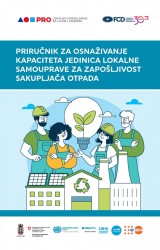 Manual for Strengthening the Capacities of Local Self-Government Units for the Employability of Waste Pickers
Manual for Strengthening the Capacities of Local Self-Government Units for the Employability of Waste Pickers
 NCEU Book of Recommendations 2025
NCEU Book of Recommendations 2025
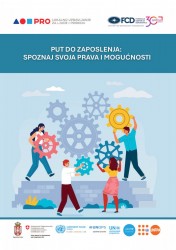 Manual “The Path to Employment: Get to Know Your Rights and Opportunities”
Manual “The Path to Employment: Get to Know Your Rights and Opportunities”
 Challenges for Organising and Collective Bargaining in Care, Administration and Waste collection sectors in Central Eastern European Countries
Challenges for Organising and Collective Bargaining in Care, Administration and Waste collection sectors in Central Eastern European Countries
 Public Policy Proposals – Collective Bargaining (CEECAW)
Public Policy Proposals – Collective Bargaining (CEECAW)
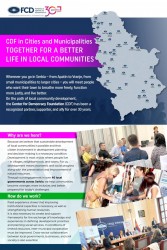 CDF in Cities and Municipalities: Together for a Better Life in Local Communities
CDF in Cities and Municipalities: Together for a Better Life in Local Communities
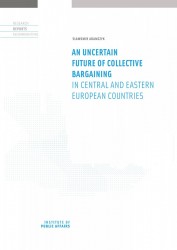 Comparative reports on collective bargaining - CEECAW
Comparative reports on collective bargaining - CEECAW
 POLITEIA – Regional School for Youth Participation 2025 (leaflet)
POLITEIA – Regional School for Youth Participation 2025 (leaflet)
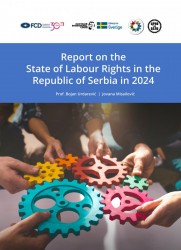 Report on the State of Labour Rights in the Republic of Serbia in 2024
Report on the State of Labour Rights in the Republic of Serbia in 2024
 Unlocking Collective Bargaining Power in Three Sectors: A Call to Action
Unlocking Collective Bargaining Power in Three Sectors: A Call to Action
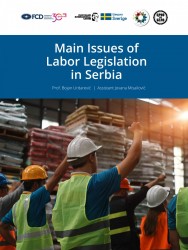 Main Issues of Labor Legislation in Serbia
Main Issues of Labor Legislation in Serbia
 New Monitoring Report by the “SDGs for All” Platform: Is the End Goal in Sight?
New Monitoring Report by the “SDGs for All” Platform: Is the End Goal in Sight?
 NCEU Book of Recommendations 2024 (Summary)
NCEU Book of Recommendations 2024 (Summary)
 National reports on collective bargaining in Serbia - CEECAW
National reports on collective bargaining in Serbia - CEECAW
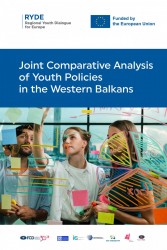 The Comparative Analysis of Youth Policies in the Western Balkans (WB)
The Comparative Analysis of Youth Policies in the Western Balkans (WB)
 Unlocking Collective Bargaining Power in Three Sectors: A Call to Action
Unlocking Collective Bargaining Power in Three Sectors: A Call to Action
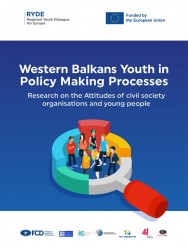 Western Balkans Youth in Policy Making Processes
Western Balkans Youth in Policy Making Processes
 SDGs for All Platform newsletter (December 2023)
SDGs for All Platform newsletter (December 2023)

















































